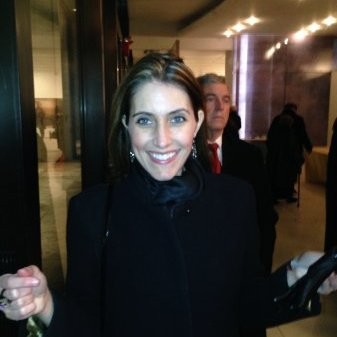When Walmart established its lofty goal of eliminating all landfill waste generated by U.S. operations by 2025, managers were probably a little unsure of how they were going to get there. Such ambition requires creativity, ingenuity and the willingness to look at everything in a new way. Fortunately, our friends at Sam's Club, the company’s warehouse arm, did not disappoint. They have come up with some pretty innovative solutions to the waste problem and in the process have turned cost centers into revenue streams.
I had the recent privilege of speaking with Eric Voyles, Sr. Manager of Operations Development at Sam’s, about one such endeavor: the recycling of the yellow tallow (grease) that is generated by the rotisserie chickens sold in the stores. According to Eric, the idea was first considered in 2008. Conversations generated during meetings of the Sustainable Value Network, which brings together cross-sector leaders to explore solutions, led to connections with the Environmental, Health and Safety Team. At the time, the EHS team was concerned about keeping grease out of plumbing systems. Eric and his team were challenged to find creative solutions to minimize landfill waste in all stores. Solution? A comprehensive program, in partnership with Texas-based Quest Recycling (the chosen vendor) that enables the yellow tallow to be recycled as biofuel and/or animal feed. Impressive? Consider this:
- According to the firm’s most recent Global Responsibility Report, the EHS team generated $15.8 million through the conversion of used cooking and motor oils in FY 2011. The Sam’s yellow tallow program is included in this figure.
- In 2010, Sam’s Club collected 236,000 gallons of tallow, with 611,000 pounds recycled into biofuels (enough to power 18 semi trucks for 1 year) and 1.2 million pounds recycled into animal feed (equivalent to feeding more than 5,000 chickens for one year).
- The grease trap required traditionally held 2,500 gallons. However, according to Eric, because of this program, the trap has been reduced to only 1,500 gallons.
Sam’s Club had roughly 300 clubs on the program at the beginning of last year and added 100 during the course of the year. The Club is committed to having the remaining 200+ Clubs on the program by the end of the year (as of April 30, 2011, Sam’s had 609 Club locations in the U.S.).
According to Sam’s Sustainability website, the company is “…looking for ways to…use materials that can be recycled”. Well, it seems yellow tallow is just such a material: a moneymaking, cost-cutting, fuel-making resource. Through this initiative Walmart and Sam’s leaders have demonstrated a willingness to develop creative solutions to achieve ambitious goals. I look forward to seeing what they cook up next. I wonder if there is anything we can do with those REALLY BIG cakes??? I volunteer my services to help on that project.

Leslie is a Sustainable MBA student at Green Mountain College. Study interests include sustainability, social responsibility and the power of corporate and non-profit partnerships to bring about positive change. Other areas of interest include social media, fundraising and public policy. She holds a Certificate in Nonprofit Management and is certified in the Global Reporting initiative for Sustainability Reporting. Additionally, she holds an MA in Organizational Management and a BS in Leisure Management. On the rare occasions when she is not studying, she enjoys writing, reading, running, nature walks and yoga. She hopes to use her skills, talents and education to make a positive impact with an environmentally and socially conscious organization. Feel free to connect with her on LinkedIn.














